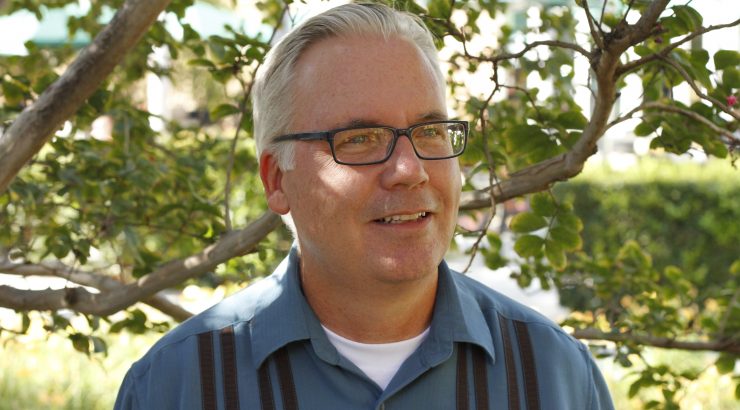Interview with Professor and Assistant Dean of Research, Scot Danforth, Ph.D. Part One of Two: Disability Studies in Education, and the Impact of Disability Studies on Policy, by Lisa Boskovich
April 25, 2017
Scot Danforth, Professor and Assistant Dean of Research in the College of Educational Studies at Chapman University, is a well-known scholar working in the fields of disability studies in education, and inclusive education. He is author or editor of over seventy publications, including ten books. His scholarship examines political and ethical issues involving disabled young people and schooling.
Interviewer, Lisa Boskovich, is a graduate research assistant at the Thompson Policy Institute (TPI) on Disability and Autism at Chapman University.
What is Disability Studies (DS)?
I often tell people that DS is the intellectual wing of the disability rights movement. If you think about disabled people coming together, and working with non-disabled allies, to seek greater participation, equality, and dignity in society, then you have a picture of the ethical goal that DS supports. The field of DS brings any and all disciplines – the arts, natural sciences, social sciences, humanities, and professions – to provide scholarship and cultural products that support the goals of disability rights.
What is the impact on DS on education?
Education, as a field of research and an area of practice, is a tough area to break into when it comes to disability. Special education and the medical model of disability have sucked up almost all of the air, the funding and spaces of legitimized research. Since the late 90’s, or perhaps earlier, Disability Studies in Education (DSE) scholarship has made inroads and found some opportunity to contribute to the conversation about human diversity and education. In my opinion, however, most of the potential of DSE remains to be explored.
What is the impact of DS on Policy?
I think that the disability rights movement has made a far greater impact on adult disability policy than DSE has made on child disability policy. The efforts and voices of disabled adults have had some influence on the national rehabilitation system. For example, the federal VR funding pays for over 300 independent living centers (run by disabled people) around the USA. There is no similar progress in regard to child disability policies. The special education system, and the original 1975 law, have been set pretty firmly in stone.
As a DS scholar what has been your primary area of scholarship?
I’ve tried to do work that is both practical and more esoteric. I have tried to write for public school teachers and leaders while also writing for university scholars. For the practitioners, I have done work on inclusion. I have a book on inclusive practice that is written for teachers. My goal is to help teachers and school leaders learn what inclusion as an ethical goal means and how to embrace and enact that goal.
For scholars, I have done lots of theoretical work examining the social construction of disability. I have worked on philosophy of research and philosophy of inclusion. I have tried to apply John Dewey’s ideas about democracy and education to issues of diversity and disability. I have also worked on history of disability, including history of learning disabilities and biography of John Dewey as a father of a disabled son.
What is it about John Dewy that continues to draw you back to him in your writing and research?
Dewey believed in a very practical kind of liberal democracy that involved and respected the contributions of all persons. His vision created active and worthwhile spaces for disabled persons, LGBT persons, and all marginalized persons because his ideas were flexible, realistic, and focused on participation. Simultaneously, he was an educator who developed a Lab School in Chicago that experimented actively with ways of making learning democratic, relevant, interesting, collaborative, and useful. His ideas on democratic living and schooling are a rich font that is largely ignored by educators today.
Stay tuned for part two of this two part interview with Scot Danforth, Ph.D.
